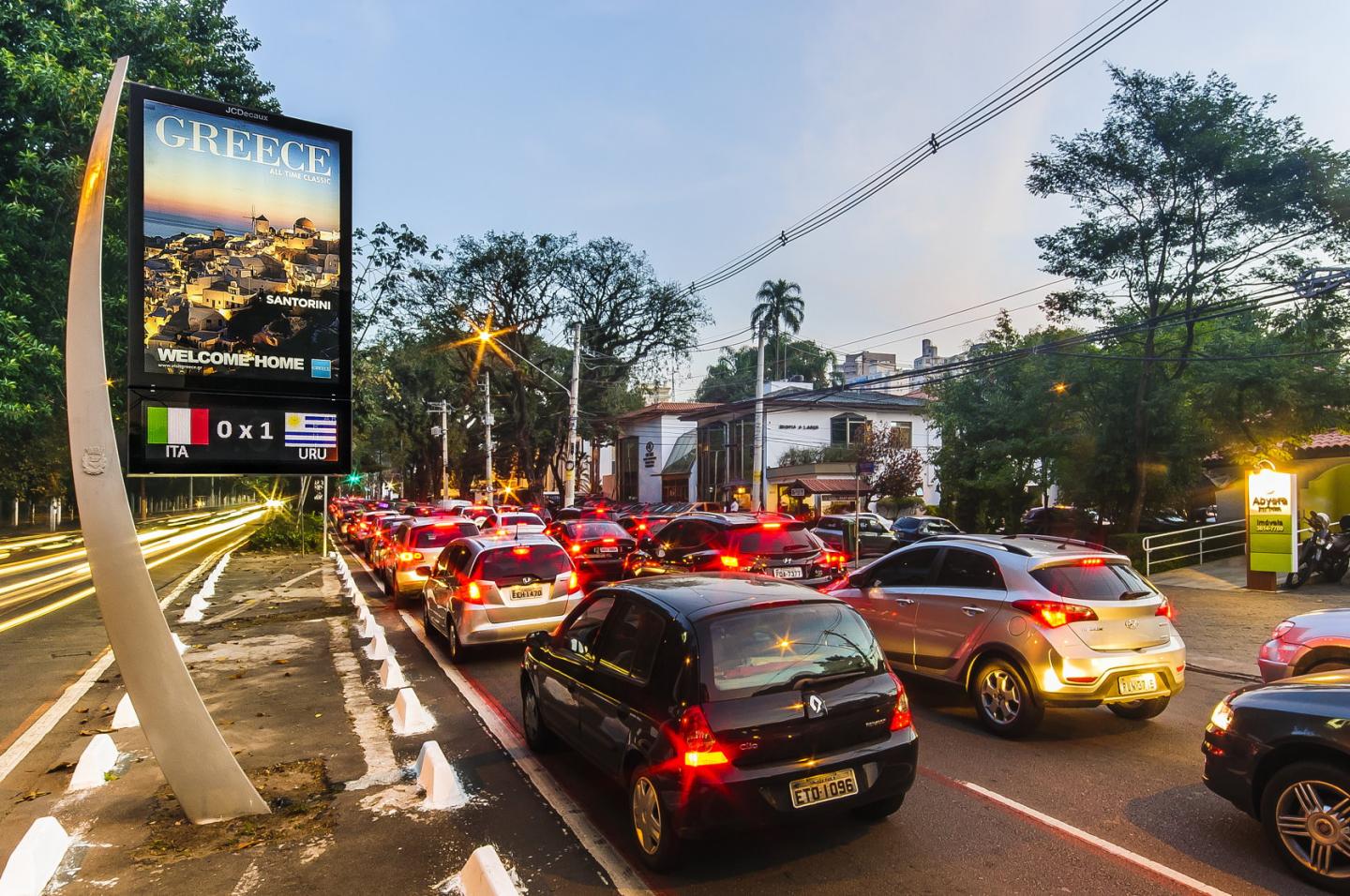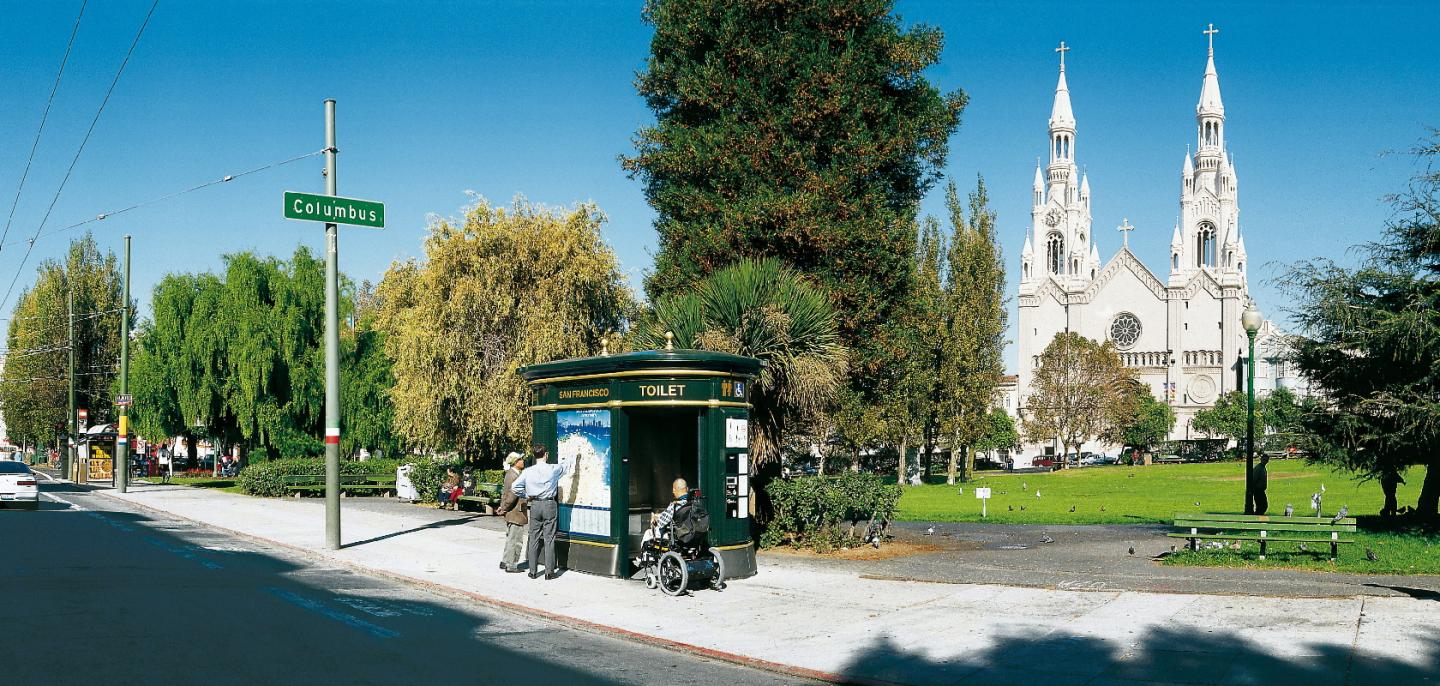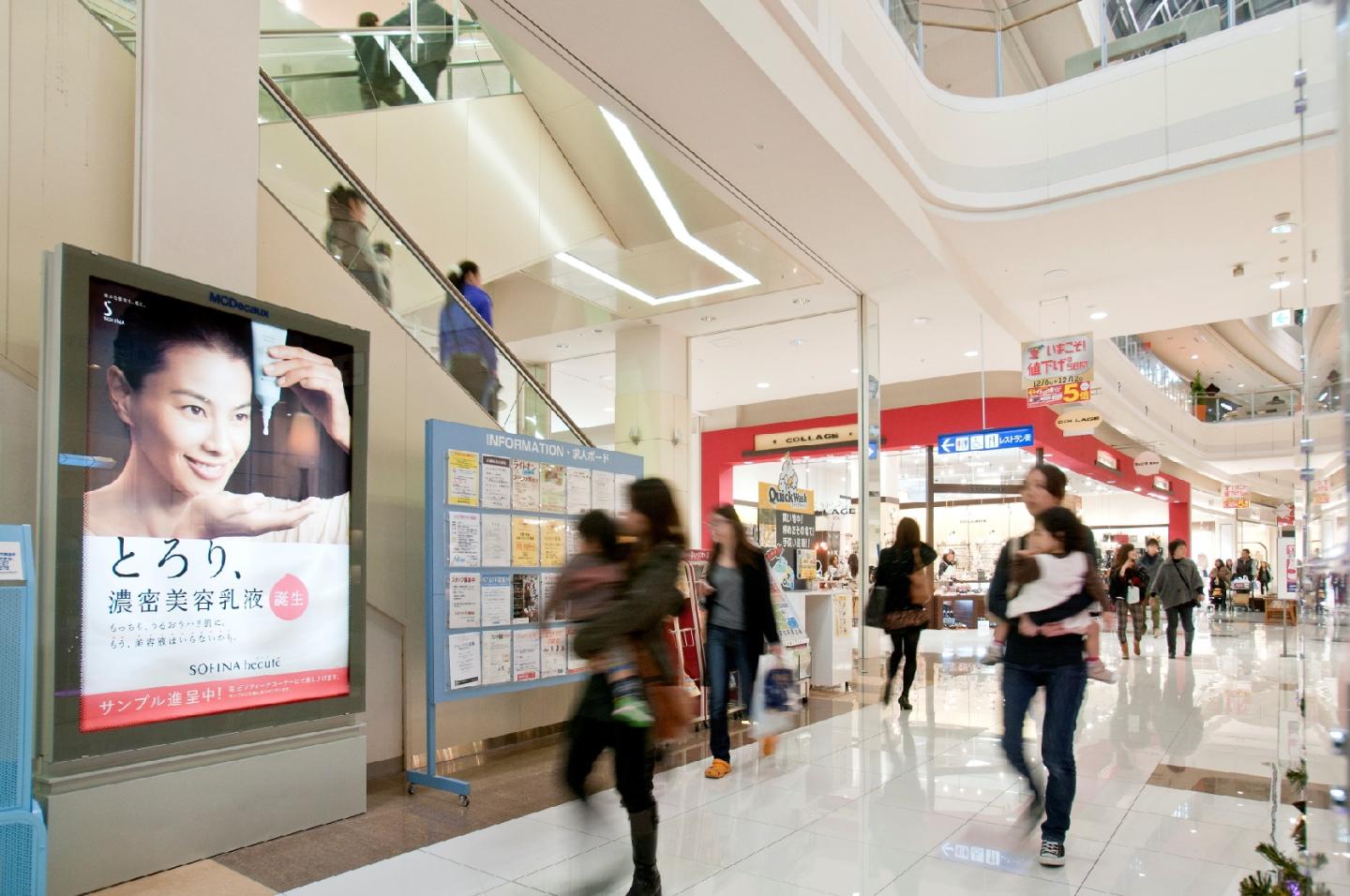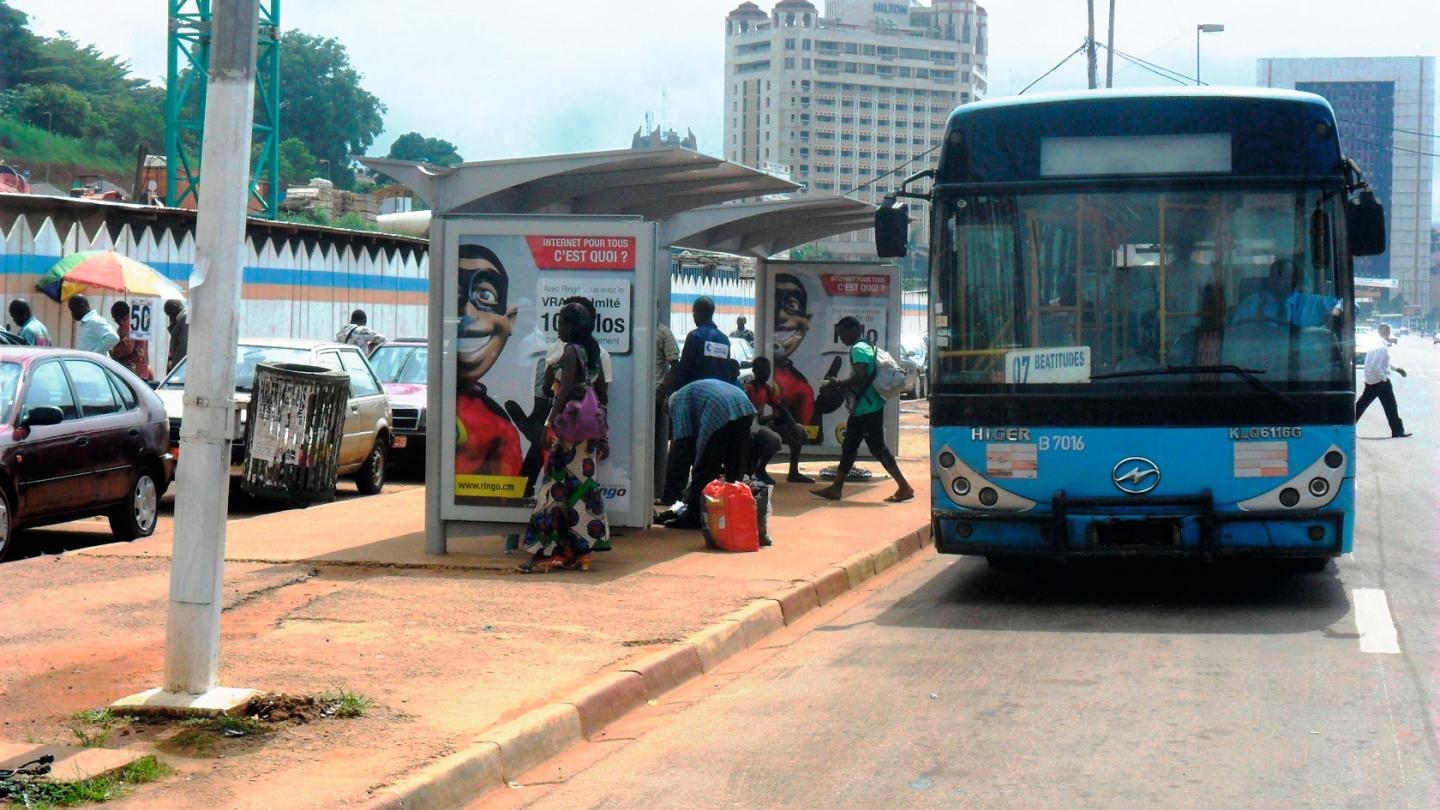The Company
From a pioneering French company to world leader
With Brazil getting ready to host the 20th Football World Cup which starts in June, JCDecaux has been present in Saõ Paulo for more than a year, operating city-wide advertising clocks used by the City Council to disseminate practical information (the time, temperature, air quality, local public information) and by announcers to advertise on 2000 panels (some of which are digital). This street furniture was installed in Brazil's largest and the world's fifth largest city thanks to a tender which JCDecaux won in 2012.
Five years after the introduction of a "Cidade Limpa" law prohibiting all advertising on the city's streets, the Group reintroduced Outdoor Advertising within a regulated context, in a format very similar to the concept invented by Jean-Claude Decaux in 1964: advertising street furniture.
 Digital Clock displaying the score of the ongoing game during the 2014 Football Worldcup - Brasil
Digital Clock displaying the score of the ongoing game during the 2014 Football Worldcup - Brasil
Thanks to a pioneering spirit that has prevailed since 1964, JCDecaux continues to conquer new markets.
The company's expansion began in Brussels in 1967. Lisbon became the first non French-speaking city to use JCDecaux's street furniture in 1971, then Jean-François, followed by Jean-Charles Decaux, stepped up the Group's international expansion.
 Morris Column - Portugal
Morris Column - Portugal
From 1982, under Jean-François Decaux’s leadership, the Group expanded into Western Europe (Germany followed by the UK), Northern Europe (Finland, Iceland, Norway, Sweden, Denmark), Central Europe (Austria, Bulgaria, Croatia, Czech Republic, Slovakia, Slovenia) and Eastern Europe (Estonia, Latvia, Lithuania, Poland, Ukraine). In 1989 it began developing in Southern Europe (Spain, Italy, Portugal) with Jean-Charles Decaux based in Madrid. JCDecaux's first US contract was signed in San Francisco in 1993 and it subsequently expanded to other large American cities before installing and operating the first digital billboard network in Chicago in 2013.
 Toilets - United States
Toilets - United States
The end of the 1990s saw JCDecaux move into Latin America (Argentina, Chile, Brazil and Uruguay). In 1997, it won a contract in Sydney as part of the Olympic Games, a venture that also opened a door into Asia Pacific (Korea, India, Japan, Malaysia). In 2005, JCDecaux became the first French company to receive an award from the Japanese Ministry of Economy, Trade and Industry for its contribution to the strength of the Japanese economy.
 Shopping Mall - Japan
Shopping Mall - Japan
From the year 2000 onwards, China, Russia, the Middle East (Saudi Arabia, the United Arab Emirates, Israel, Uzbekistan, Qatar and the Sultanate of Oman) and Africa (Algeria, South Africa, Cameroon) were able to discover JCDecaux street furniture and supports.
 Adverstising bus shelter - Cameroon
Adverstising bus shelter - Cameroon
In February 2011, JCDecaux became No. 1 in Outdoor Communication. In 2013, it was present in more than 60 countries and generated 76.9% of its sales internationally.
Five years after the introduction of a "Cidade Limpa" law prohibiting all advertising on the city's streets, the Group reintroduced Outdoor Advertising within a regulated context, in a format very similar to the concept invented by Jean-Claude Decaux in 1964: advertising street furniture.

Thanks to a pioneering spirit that has prevailed since 1964, JCDecaux continues to conquer new markets.
The company's expansion began in Brussels in 1967. Lisbon became the first non French-speaking city to use JCDecaux's street furniture in 1971, then Jean-François, followed by Jean-Charles Decaux, stepped up the Group's international expansion.

From 1982, under Jean-François Decaux’s leadership, the Group expanded into Western Europe (Germany followed by the UK), Northern Europe (Finland, Iceland, Norway, Sweden, Denmark), Central Europe (Austria, Bulgaria, Croatia, Czech Republic, Slovakia, Slovenia) and Eastern Europe (Estonia, Latvia, Lithuania, Poland, Ukraine). In 1989 it began developing in Southern Europe (Spain, Italy, Portugal) with Jean-Charles Decaux based in Madrid. JCDecaux's first US contract was signed in San Francisco in 1993 and it subsequently expanded to other large American cities before installing and operating the first digital billboard network in Chicago in 2013.

The end of the 1990s saw JCDecaux move into Latin America (Argentina, Chile, Brazil and Uruguay). In 1997, it won a contract in Sydney as part of the Olympic Games, a venture that also opened a door into Asia Pacific (Korea, India, Japan, Malaysia). In 2005, JCDecaux became the first French company to receive an award from the Japanese Ministry of Economy, Trade and Industry for its contribution to the strength of the Japanese economy.

From the year 2000 onwards, China, Russia, the Middle East (Saudi Arabia, the United Arab Emirates, Israel, Uzbekistan, Qatar and the Sultanate of Oman) and Africa (Algeria, South Africa, Cameroon) were able to discover JCDecaux street furniture and supports.

In February 2011, JCDecaux became No. 1 in Outdoor Communication. In 2013, it was present in more than 60 countries and generated 76.9% of its sales internationally.



